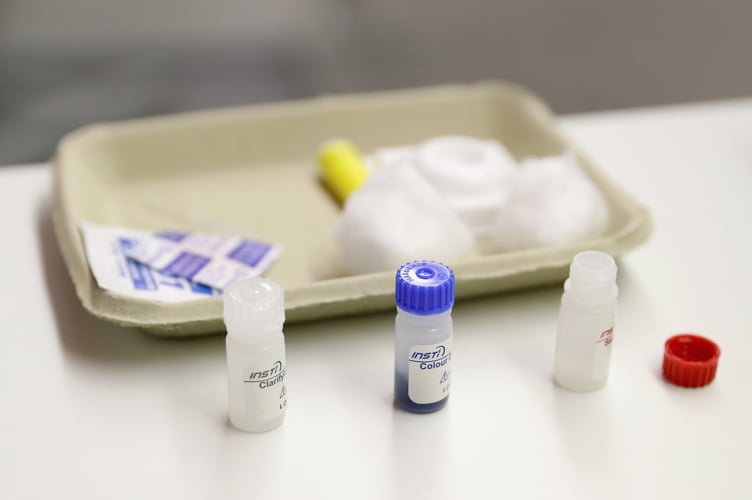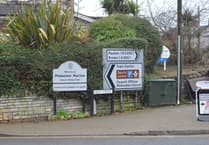The number of new HIV diagnoses in Bath and North East Somerset reached a record high last year, new figures show.
A spokesperson for the Terrence Higgins Trust, an HIV charity, called the record-high diagnosis rates "sobering", and called for more investment to get tests to those who need them.
Data from the UK Health Security Agency shows 15 people in Bath and North East Somerset were newly diagnosed with the disease last year – the highest figure since comparable records began in 2011.
This was equivalent to 7.5 diagnoses per 100,000 people in the area, also the highest figure since 2011.
Across England, the new diagnosis rate was 10.4 per 100,000 people in 2023 – almost double the rate from 2020, when diagnoses dropped sharply during the pandemic, and the highest figure since 2014.
There were also more people tested for HIV in 2023, with a substantial recovery to 96% of the testing levels in 2019.
This was largely due to a 34% rise in testing for gay and bisexual men, as there was a 10% and 22% decline in testing among heterosexual and bisexual women, and heterosexual men respectively.
Dr Tamara Djuretic, co-head of HIV at the UKHSA, said: "HIV can affect anyone, no matter your gender or sexual orientation, so please get regularly tested and use condoms to protect you and your partners’ health.
"An HIV test is free and provides access to HIV PrEP if needed.
"If you do test positive, treatment is so effective that you can expect to live a long healthy life and you won’t pass HIV on to partners."
PrEP is a drug taken either daily or before and after sex that can block HIV if it gets into the body.
Nationally, 96,562 people took PrEP last year, including 191 in Bath and North East Somerset.
The figures also show 80,530 people aged 15 to 59 were living with the disease in England last year, equivalent to 2.4 cases per 1,000 people – a 12-year and record high rate.
In Bath and North East Somerset, 0.98 per 1,000 15 to 59-year-olds had HIV last year.
But with treatments now available to manage HIV, more people are also living with the condition for longer.
Nationally, 51% of those who had it last year were aged over 50, compared to 27% in 2013.
Takudzwa Mukiwa, head of HIV prevention at the Terrence Higgins Trust said: "We need innovation and investment in order to get tests to those who need them, and to improve access to PrEP. The Government’s promised new HIV Action Plan needs to deliver.
"There is still more to do to get the basics right – no one should leave a sexual health or contraception appointment without a test and the cities outside London that have funding to test everyone in A&E for HIV and hepatitis need to expedite the programme’s launch."
Minister for public health and prevention Andrew Gwynne said: "This data shows we have much more work to do and brings to light concerning inequalities in access to tests and treatments. I will be working across Government to ensure that we work to stop HIV transmissions for good.
"Our new HIV Action Plan aims to end transmissions in England by 2030 with better prevention, testing and treatment."




